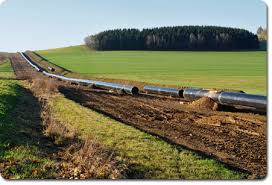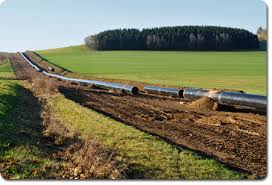
The question of whether an unprecedented wave of bankruptcies expected to hit U.S. oil and gas producers this year will imperil the $500 billion pipeline sector as well now hinges on outcome of two low-profile legal disputes that is expected within weeks.
Chapter 11 bankruptcy protection is being tried to be used by U.S. energy producers in the two court fights. The Chapter 11 bankruptcy protection is being used to shed long-term contracts with the pipeline operators that gather and process shale gas before it is delivered to consumer markets.
Deals worth billions of dollars annually are made for the so-called midstream sector and the attempts to shed the contracts by Sabine Oil & Gas and Quicksilver Resources are viewed by executives and lawyers as a litmus test for such deals.
Restructuring experts say that if the two producers manage to tear up or renegotiate their deals, others will follow. However pipeline operators have argued the contracts are secure.
The midstream companies have plowed up to $30 billion a year into infrastructure to serve the U.S. fracking boom and cancellation of the deals could add a new element of risk for already hard-hit investors.
"It's a hellacious problem. It will end with even more bankruptcies," said Hugh Ray, a bankruptcy lawyer with McKool Smith in Houston.
The judge was inclined to allow Houston-based Sabine to end its pipeline contract, which guaranteed it would ship a minimum volume of gas through a system built by a Cheniere Energy subsidiary until 2024, a judge on New York's influential bankruptcy court said on February 2. They could save $35 million by ending the Cheniere contract, and then save millions more by building an entirely new system, Sabine's lawyers argued.
The appeal by Fort Worth, Texas-based Quicksilver's request to shed a contract with another midstream operator is set for February 26.
Raised in law firms' client memos and investment bank research notes, the concerns have grown more evident in recent days.
Executives from Williams Companies Inc and Enbridge Inc last week said that they were reviewing contracts or securing additional credit guarantees to minimize the impact of the biggest oil bust in a generation. These two are the among the world's largest pipeline operators.
Relatively few oil and gas producers, mostly smaller firms, have entered bankruptcy so far.
However consultancy Deloitte said in a February 16 report that up to a third of them are at risk of bankruptcy this year due to the oil prices which are down 70 percent since mid-2014 and natural gas prices being in a prolonged slump.
Analysts focus on risks to the hundreds of billions of dollars in equity and debt of firms most directly exposed to commodity prices while midstream operators have been considered relatively secure as investors.
This confidence comes from the multi-year contracts -- the kind targeted in the two bankruptcies -- that guarantee pipeline operators fixed fees to transport minimum volumes of oil or gas, that the companies such as Enterprise Products, Kinder Morgan KM.N and Plains All American relied upon.
Many of the cash-strapped producers entering bankruptcy will be seeking to rid themselves of pricey agreements, particularly those with so-called minimum volume commitments that require paying for space even if it is not used due to the shrinking U.S. oil output and stalling gas production.
(Source:www.reuters.com)
Chapter 11 bankruptcy protection is being tried to be used by U.S. energy producers in the two court fights. The Chapter 11 bankruptcy protection is being used to shed long-term contracts with the pipeline operators that gather and process shale gas before it is delivered to consumer markets.
Deals worth billions of dollars annually are made for the so-called midstream sector and the attempts to shed the contracts by Sabine Oil & Gas and Quicksilver Resources are viewed by executives and lawyers as a litmus test for such deals.
Restructuring experts say that if the two producers manage to tear up or renegotiate their deals, others will follow. However pipeline operators have argued the contracts are secure.
The midstream companies have plowed up to $30 billion a year into infrastructure to serve the U.S. fracking boom and cancellation of the deals could add a new element of risk for already hard-hit investors.
"It's a hellacious problem. It will end with even more bankruptcies," said Hugh Ray, a bankruptcy lawyer with McKool Smith in Houston.
The judge was inclined to allow Houston-based Sabine to end its pipeline contract, which guaranteed it would ship a minimum volume of gas through a system built by a Cheniere Energy subsidiary until 2024, a judge on New York's influential bankruptcy court said on February 2. They could save $35 million by ending the Cheniere contract, and then save millions more by building an entirely new system, Sabine's lawyers argued.
The appeal by Fort Worth, Texas-based Quicksilver's request to shed a contract with another midstream operator is set for February 26.
Raised in law firms' client memos and investment bank research notes, the concerns have grown more evident in recent days.
Executives from Williams Companies Inc and Enbridge Inc last week said that they were reviewing contracts or securing additional credit guarantees to minimize the impact of the biggest oil bust in a generation. These two are the among the world's largest pipeline operators.
Relatively few oil and gas producers, mostly smaller firms, have entered bankruptcy so far.
However consultancy Deloitte said in a February 16 report that up to a third of them are at risk of bankruptcy this year due to the oil prices which are down 70 percent since mid-2014 and natural gas prices being in a prolonged slump.
Analysts focus on risks to the hundreds of billions of dollars in equity and debt of firms most directly exposed to commodity prices while midstream operators have been considered relatively secure as investors.
This confidence comes from the multi-year contracts -- the kind targeted in the two bankruptcies -- that guarantee pipeline operators fixed fees to transport minimum volumes of oil or gas, that the companies such as Enterprise Products, Kinder Morgan KM.N and Plains All American relied upon.
Many of the cash-strapped producers entering bankruptcy will be seeking to rid themselves of pricey agreements, particularly those with so-called minimum volume commitments that require paying for space even if it is not used due to the shrinking U.S. oil output and stalling gas production.
(Source:www.reuters.com)





